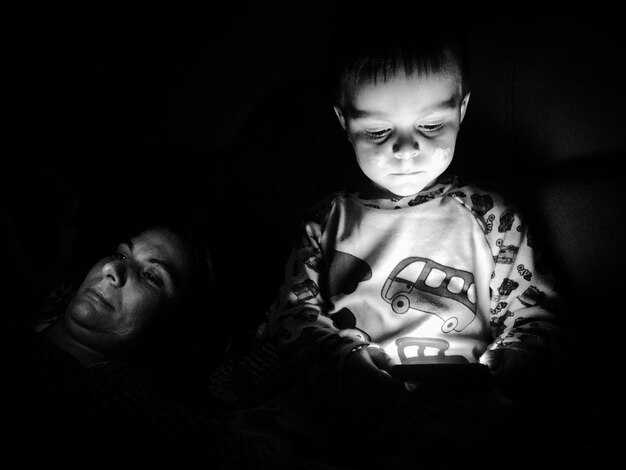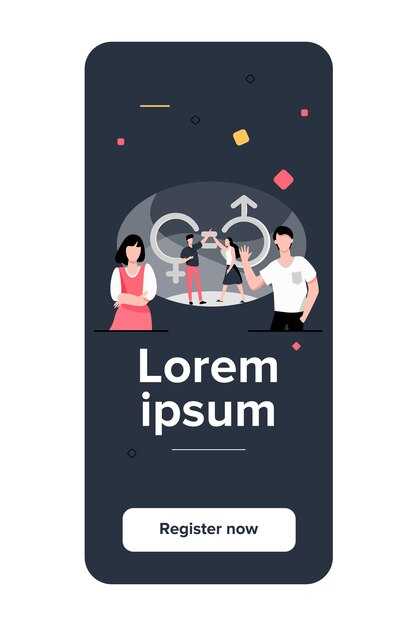The absolute worst sensation is knowing there are simple things you should do—lay out your clothes for the morning, send an important email, put the trash out before the truck arrives—but being powerless to do any of them. Everyone procrastinates at times, yet for people who grew up abused or neglected, other forces amplify procrastination into something much more destructive. Unresolved issues can take over your life, hold you back, and sink you into deep discouragement, leaving you stuck in the same paralyzing rut day after day. But if you learn to address the trauma that fuels this avoidance, things can change dramatically. I learned this the hard way: I used to be chronically stuck in procrastination, which was demoralizing, and then I figured out how to stop. If I hadn’t, I wouldn’t have this YouTube channel, the courses, a book, live shows, and a team of nine people. When people ask how I turned it around, many don’t like the answer, but for those willing to hear it, here’s what helped me. First, I redefined procrastination: the word softens the reality. It isn’t just “being lazy.” Procrastination can wreck your life like a parasite that eats away at your will and undermines your sense that your life matters. I call it paralysis because you become incapable of taking constructive action on your own behalf—whether that’s small chores like doomscrolling instead of working, or larger failures with serious consequences, like letting a utility bill go unpaid and leaving your family without power—things that actually happened where I grew up. Procrastination can destroy relationships, careers, integrity, finances, and health. That’s not mere laziness; it’s a deep psychic wound. So why do we freeze? The hardest part is committing—to do the work, to spend energy, to build something from nothing. We postpone because meaningful effort is difficult. That difficulty combines with the fatigue of trauma-related symptoms—depression, conflict, emotional volatility, overwhelm—and it can feel like life already takes everything from you, so you can only handle what’s necessary for survival. That response makes sense in its way, but it doesn’t help heal trauma. For instance, I love publishing videos on YouTube and engaging with the comments and conversations that viewers create; it moves me when people are kind to one another. Yet the preparation—planning, researching, scripting—feels torturous at times. Each video usually costs about six to eight hours of creative work: deciding the logical sequence, the main points, then producing it. Even when I use older footage or read letters on camera, selecting which letters to answer takes hours and requires emotional stamina because so many share hard stories. The real hurdle is starting. When it’s time to decide what I’ll film this week, I suddenly fixate on houseplants or cleaning crud from the sliding window track, or scrolling Twitter, instead of doing the work that ultimately brings me joy and supports my family. It’s paradoxical—those distractions make me feel worse, while the work itself makes me feel fulfilled. Committing to a plan and following through is integrity: it’s accomplishment and a way to live my mission of helping people with childhood PTSD recover. I’m proud of the work I do, warts and all. Many people get stuck worrying their output isn’t good enough—I put out four videos a week and accept that not every piece is perfect; sometimes people criticize my work and that’s part of the cost of being productive. Procrastination is an attempt to manage stress—it feels like a way to recharge, as if delaying things will magically restore your energy to spring into action later. But it doesn’t work that way. Rest and self-care are essential, yet avoiding necessary work doesn’t relieve stress; it creates more. For people with childhood PTSD, life often feels stressful almost constantly, so everything takes extra effort. That creates a vicious cycle: stress makes tasks harder, so you avoid them; avoidance increases stress, which leads to more avoidance. Folks without that background can’t always grasp how exhausting ordinary activities can be—interacting with others, leaving the house, keeping a schedule, expressing yourself, dealing with differing opinions, and making money can all be profoundly draining. Yet what’s even harder is not doing these things. So when you feel overwhelmed, the answer isn’t always permission to procrastinate. Sometimes the best way to reduce stress is to take the chaos of your undone tasks—the backlog of emails, projects, and appointments—and simply begin tackling them. It feels better. Stop telling yourself avoidance is the cure; usually the path of least resistance is actually to do the task. I know people will bristle at hearing “just do it,” and they’ll protest that they can’t—but this advice isn’t for those who want to remain stuck. It’s for those who want practical, hard-won ways out. Action, taken in proportion to your capacity, is the way life becomes easier because making order out of chaos is energizing and uplifting. How to start? You may swing between paralysis and manic bursts—“I’ll do everything in three hours!”—which is a classic pattern for those with childhood trauma. That surge can be useful sometimes, but more often it leads to making an enormous list, attempting multiple tasks at once, becoming overwhelmed, and crashing back into avoidance. So practice pacing yourself: treat taking action like a muscle you build slowly, a bit at a time. Whether you chip away gradually or go on a focused cleaning spree, the real anti-solution is giving up on yourself. Don’t confuse surrender and passivity with self-care. Resist wallowing in feeds that sentimentalize being broken if that keeps you from acting on your strengths, your vision, and your commitment not to betray yourself. When you let yourself down, self-defeating patterns surface—your CPTSD may start cultivating blame and paranoia: sudden thoughts that people are against you or obsessive replaying of past hurts. When those thoughts arise, ask whether you’re actually avoiding something right now, and whether you’re angry at yourself for failing to follow through. If you suspect complex PTSD is behind these patterns, you can take a quiz I developed—there’s a link to it in the description near the top, directing you to the free tools page of my website, where you’ll also find my quizzes and the free Daily Practice course. Most people don’t want to hear this, but the remedy is action—small, steady actions aligned with what you can manage. If you’ve been skipping minor routines like brushing your teeth at night, start there: do that one thing even when you’re tired. It’s practice—an opportunity to experience integrity around intention and follow-through. The next day, do the laundry; if that goes well, answer the emails you left unanswered for three weeks; schedule a haircut; use the gym membership you’re paying for; review recurring charges draining your cards for services you never use; toss the moldy takeout and the wilted broccoli in the fridge (I had to do that today); sweep the stoop. These are sensible, ordinary actions you need to take. Push yourself gently—don’t become manic—just a small nudge each day. You may hear the phrase “don’t be a human doing, be a human being.” It’s a lovely sentiment, but both doing and being matter: doing is how we earn, express ourselves, and become fully ourselves. It’s not only the task finished that matters but the momentum you generate. Repeated action makes further action easier and more natural. I procrastinated on the idea for crappy childhood fairy for almost twenty years before I had the inner strength to begin, and I’m so glad I finally did. What launched me was paying to attend a seminar about using your life story to teach others—$2,000 just to get in the door for four days, plus hotel and meals. I was terrified: judged, criticized, or trapped by success into constant work. And some of those fears came true—this work can be a full-time job plus nights and weekends—but finally I was offering what I had to give. I’d spent previous jobs getting paychecks while feeling life pass me by; this work made me feel present in my life. There’s a difference between working for money and doing work that lets you feel truly alive, and I encourage you to move toward work that aligns with who you are because I believe that’s what creates real happiness. It’s what lets you go to bed knowing you spent your day well. It doesn’t have to be a monumental achievement every day—small things counted for me: connecting lovingly with family and friends, being outside for a walk, and doing meaningful work that helps others. I used to envy road builders, oddly enough, because they could see the concrete result of an honest day’s labor. I never felt that until I began this work. The seminar did not go perfectly—I came down with stomach flu on the third day and missed part of it—but it started the shift: I finally stopped feeling like my life was slipping away and felt accountable for the gifts and opportunities I’d been given: food, shelter, education, health. I felt I owed the world my best, so I launched crappy childhood fairy as a blog, and that instant sense of failure began to dissolve. New projects appeared in my mind—videos, a book, courses—and then I made them. Being the crappy childhood fairy is a lot of work and emotionally taxing at times, but it’s never as brutal as the life I had before when I knew I could create and didn’t make the effort. Time ticks, and the world waits for you to step into your rightful place; you can do that by taking a single action today. Start small and stay consistent: small sustainable actions build on each other with breathing room between steps so you can regain equilibrium. Over time, these tiny efforts accumulate into huge change. If years of suppression have kept your light dim, your spirit will relish the progress and the pleasure of accomplishment. Acting doesn’t always guarantee success, but it always brings vibrancy—you’re alive, engaged in the adventure, tasting failures and wins. You may not always reach your original goals or may even change them, but daily incremental work opens your life to unexpected opportunities and connections. Being in the game means you’re open for business; your strength is action. If you want your nervous system and mind to be free so action arises more naturally, try the Daily Practice—my free course you can sign up for right away. Click right here to begin, and I’ll see you very soon [Music]
![The absolute worst sensation is knowing there are simple things you should do—lay out your clothes for the morning, send an important email, put the trash out before the truck arrives—but being powerless to do any of them. Everyone procrastinates at times, yet for people who grew up abused or neglected, other forces amplify procrastination into something much more destructive. Unresolved issues can take over your life, hold you back, and sink you into deep discouragement, leaving you stuck in the same paralyzing rut day after day. But if you learn to address the trauma that fuels this avoidance, things can change dramatically. I learned this the hard way: I used to be chronically stuck in procrastination, which was demoralizing, and then I figured out how to stop. If I hadn’t, I wouldn’t have this YouTube channel, the courses, a book, live shows, and a team of nine people. When people ask how I turned it around, many don’t like the answer, but for those willing to hear it, here’s what helped me. First, I redefined procrastination: the word softens the reality. It isn’t just “being lazy.” Procrastination can wreck your life like a parasite that eats away at your will and undermines your sense that your life matters. I call it paralysis because you become incapable of taking constructive action on your own behalf—whether that’s small chores like doomscrolling instead of working, or larger failures with serious consequences, like letting a utility bill go unpaid and leaving your family without power—things that actually happened where I grew up. Procrastination can destroy relationships, careers, integrity, finances, and health. That’s not mere laziness; it’s a deep psychic wound. So why do we freeze? The hardest part is committing—to do the work, to spend energy, to build something from nothing. We postpone because meaningful effort is difficult. That difficulty combines with the fatigue of trauma-related symptoms—depression, conflict, emotional volatility, overwhelm—and it can feel like life already takes everything from you, so you can only handle what’s necessary for survival. That response makes sense in its way, but it doesn’t help heal trauma. For instance, I love publishing videos on YouTube and engaging with the comments and conversations that viewers create; it moves me when people are kind to one another. Yet the preparation—planning, researching, scripting—feels torturous at times. Each video usually costs about six to eight hours of creative work: deciding the logical sequence, the main points, then producing it. Even when I use older footage or read letters on camera, selecting which letters to answer takes hours and requires emotional stamina because so many share hard stories. The real hurdle is starting. When it’s time to decide what I’ll film this week, I suddenly fixate on houseplants or cleaning crud from the sliding window track, or scrolling Twitter, instead of doing the work that ultimately brings me joy and supports my family. It’s paradoxical—those distractions make me feel worse, while the work itself makes me feel fulfilled. Committing to a plan and following through is integrity: it’s accomplishment and a way to live my mission of helping people with childhood PTSD recover. I’m proud of the work I do, warts and all. Many people get stuck worrying their output isn’t good enough—I put out four videos a week and accept that not every piece is perfect; sometimes people criticize my work and that’s part of the cost of being productive. Procrastination is an attempt to manage stress—it feels like a way to recharge, as if delaying things will magically restore your energy to spring into action later. But it doesn’t work that way. Rest and self-care are essential, yet avoiding necessary work doesn’t relieve stress; it creates more. For people with childhood PTSD, life often feels stressful almost constantly, so everything takes extra effort. That creates a vicious cycle: stress makes tasks harder, so you avoid them; avoidance increases stress, which leads to more avoidance. Folks without that background can’t always grasp how exhausting ordinary activities can be—interacting with others, leaving the house, keeping a schedule, expressing yourself, dealing with differing opinions, and making money can all be profoundly draining. Yet what’s even harder is not doing these things. So when you feel overwhelmed, the answer isn’t always permission to procrastinate. Sometimes the best way to reduce stress is to take the chaos of your undone tasks—the backlog of emails, projects, and appointments—and simply begin tackling them. It feels better. Stop telling yourself avoidance is the cure; usually the path of least resistance is actually to do the task. I know people will bristle at hearing “just do it,” and they’ll protest that they can’t—but this advice isn’t for those who want to remain stuck. It’s for those who want practical, hard-won ways out. Action, taken in proportion to your capacity, is the way life becomes easier because making order out of chaos is energizing and uplifting. How to start? You may swing between paralysis and manic bursts—“I’ll do everything in three hours!”—which is a classic pattern for those with childhood trauma. That surge can be useful sometimes, but more often it leads to making an enormous list, attempting multiple tasks at once, becoming overwhelmed, and crashing back into avoidance. So practice pacing yourself: treat taking action like a muscle you build slowly, a bit at a time. Whether you chip away gradually or go on a focused cleaning spree, the real anti-solution is giving up on yourself. Don’t confuse surrender and passivity with self-care. Resist wallowing in feeds that sentimentalize being broken if that keeps you from acting on your strengths, your vision, and your commitment not to betray yourself. When you let yourself down, self-defeating patterns surface—your CPTSD may start cultivating blame and paranoia: sudden thoughts that people are against you or obsessive replaying of past hurts. When those thoughts arise, ask whether you’re actually avoiding something right now, and whether you’re angry at yourself for failing to follow through. If you suspect complex PTSD is behind these patterns, you can take a quiz I developed—there’s a link to it in the description near the top, directing you to the free tools page of my website, where you’ll also find my quizzes and the free Daily Practice course. Most people don’t want to hear this, but the remedy is action—small, steady actions aligned with what you can manage. If you’ve been skipping minor routines like brushing your teeth at night, start there: do that one thing even when you’re tired. It’s practice—an opportunity to experience integrity around intention and follow-through. The next day, do the laundry; if that goes well, answer the emails you left unanswered for three weeks; schedule a haircut; use the gym membership you’re paying for; review recurring charges draining your cards for services you never use; toss the moldy takeout and the wilted broccoli in the fridge (I had to do that today); sweep the stoop. These are sensible, ordinary actions you need to take. Push yourself gently—don’t become manic—just a small nudge each day. You may hear the phrase “don’t be a human doing, be a human being.” It’s a lovely sentiment, but both doing and being matter: doing is how we earn, express ourselves, and become fully ourselves. It’s not only the task finished that matters but the momentum you generate. Repeated action makes further action easier and more natural. I procrastinated on the idea for crappy childhood fairy for almost twenty years before I had the inner strength to begin, and I’m so glad I finally did. What launched me was paying to attend a seminar about using your life story to teach others—$2,000 just to get in the door for four days, plus hotel and meals. I was terrified: judged, criticized, or trapped by success into constant work. And some of those fears came true—this work can be a full-time job plus nights and weekends—but finally I was offering what I had to give. I’d spent previous jobs getting paychecks while feeling life pass me by; this work made me feel present in my life. There’s a difference between working for money and doing work that lets you feel truly alive, and I encourage you to move toward work that aligns with who you are because I believe that’s what creates real happiness. It’s what lets you go to bed knowing you spent your day well. It doesn’t have to be a monumental achievement every day—small things counted for me: connecting lovingly with family and friends, being outside for a walk, and doing meaningful work that helps others. I used to envy road builders, oddly enough, because they could see the concrete result of an honest day’s labor. I never felt that until I began this work. The seminar did not go perfectly—I came down with stomach flu on the third day and missed part of it—but it started the shift: I finally stopped feeling like my life was slipping away and felt accountable for the gifts and opportunities I’d been given: food, shelter, education, health. I felt I owed the world my best, so I launched crappy childhood fairy as a blog, and that instant sense of failure began to dissolve. New projects appeared in my mind—videos, a book, courses—and then I made them. Being the crappy childhood fairy is a lot of work and emotionally taxing at times, but it’s never as brutal as the life I had before when I knew I could create and didn’t make the effort. Time ticks, and the world waits for you to step into your rightful place; you can do that by taking a single action today. Start small and stay consistent: small sustainable actions build on each other with breathing room between steps so you can regain equilibrium. Over time, these tiny efforts accumulate into huge change. If years of suppression have kept your light dim, your spirit will relish the progress and the pleasure of accomplishment. Acting doesn’t always guarantee success, but it always brings vibrancy—you’re alive, engaged in the adventure, tasting failures and wins. You may not always reach your original goals or may even change them, but daily incremental work opens your life to unexpected opportunities and connections. Being in the game means you’re open for business; your strength is action. If you want your nervous system and mind to be free so action arises more naturally, try the Daily Practice—my free course you can sign up for right away. Click right here to begin, and I’ll see you very soon [Music]](/wp-content/images/cptsd-could-be-the-reason-you-struggle-to-get-things-done-2n1s1ocb.jpg)


 CPTSD Could Be the Reason You Struggle to GET THINGS DONE">
CPTSD Could Be the Reason You Struggle to GET THINGS DONE">

 When The Avoidant Becomes Anxious About Losing You (The Shocking Role Reversal)">
When The Avoidant Becomes Anxious About Losing You (The Shocking Role Reversal)">
 Mój mąż po prostu czuje się zaatakowany!">
Mój mąż po prostu czuje się zaatakowany!">
 Jeśli Twoje ciało to robi, NIE ignoruj tego! — To oznacza, że jesteś w trybie przetrwania!">
Jeśli Twoje ciało to robi, NIE ignoruj tego! — To oznacza, że jesteś w trybie przetrwania!">
 Kiedy jest OK, aby Kłamać naszym Partnerom?">
Kiedy jest OK, aby Kłamać naszym Partnerom?">
 CPTSD Powoduje Tęsknotę za Bliskością, Ale się Jej (Obawia) (Komputacja z 3 Filmów)">
CPTSD Powoduje Tęsknotę za Bliskością, Ale się Jej (Obawia) (Komputacja z 3 Filmów)">
 Starve Avoidants of Love — Watch Them Chase You | Avoidant Attachment Style">
Starve Avoidants of Love — Watch Them Chase You | Avoidant Attachment Style">
 Tough Love Dating Advice">
Tough Love Dating Advice">
 Avoidant Attachment: The REAL Reason They Want You After A Breakup">
Avoidant Attachment: The REAL Reason They Want You After A Breakup">
 One minute Relationship Hack">
One minute Relationship Hack">
 The Real Reason Your Trauma Symptoms Come Back (4-Video Compilation)">
The Real Reason Your Trauma Symptoms Come Back (4-Video Compilation)">